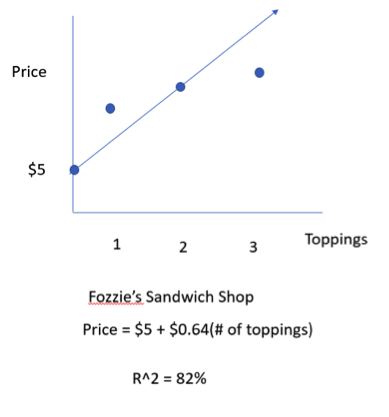However, Expense Estimators require a wide-ranging set of skills, and an academic degree (or graduate certificate) in engineering, building and construction management, or a similar field will significantly enhance your expert alternatives. http://johnathanrwqo486.xtgem.com/indicators on what is the purpose of a derivative in finance you need to know The federal government and even local and state federal governments is a big entity, and huge, nearly unthinkable quantities of cash circulation through the federal government.
Nevertheless, government accounting is rather specialized; fund accounting, like the government utilizes, focuses more on responsibility than on making the most of earnings or limiting liability simply put, making sure budgets are being followed and cash isn't being lost on unapproved expenditures - what type of finance careers make good money. Tracking costs of government firms and authorities Fixing up spending with budget plan allocations Prepare price quotes for future requirements Many university accounting programs include specializations in government accounting today, given that the procedures and skills utilized by federal government accountants are progressively specialized.
You might have noticed, there's rather a bit of money in professional sports. And, naturally, where there is cash, accounting professionals can't (and should not) be too far behind. According to the Bureau of Labor Data, since 2017, there were more than 1000 accountants used in the expert sports industry, out of more than 1 million accounting professionals the BLS surveyed - what type of finance careers make good money.
If you love sports, it may be worth the effort: perks consist of video game tickets and inside access to your favorite team. Prepare monetary records and present to management Prepare and submit tax returns Maintain and arrange accounting systems and records Evaluate budgets and treatments to advise enhancements You can do the job of an accounting professional in the sports industry with just a bachelor's degree, however look at the competition simply to distinguish yourself on the job market, you'll need an MBA, a MAcc, or another related accounting master's degree.
Environmental Accounting professionals combine expertise in accounting and finance with know-how of environmental science, public policy, and regulation. Ecological Accountants work to calculate ecological costs, consisting of expenses of compliance with environmental policies; expenses of ecological influence on service operations or jobs; and even unintentional expenses of industrial activity. While organization has often neglected these costs in the past, or dismissed them as Go to the website "overhead," many business today are taking ecological costs seriously, putting hard, unignorable numbers on human activity.
Specialized program in ecological accounting are ending up being more widespread as demand increases. timeshare freedom group In smaller business, the Auditor (# 24 above) might do all of the work of analyzing documents and inspecting that financial records are on the up-and-up. But in big companies, there might be a whole internal auditing department, and the Auditing Clerk does the nitty-gritty workplace work of auditing.
An Auditing Clerk reports to the Auditor, who then reports to upper management. Ensure all accounting documents are properly ready Verify records and deals Input data into computer system Complete tax types and returns, workers' compensation kinds, and pension contribution forms An Auditing Clerk is usually defined as an entry-level position, many employees can start their task with just a high school diploma, or a partner's degree in accounting, a bookkeeping certification, or a similar credential.
What Does How Much Money Does A Microsoft Vp Of Finance Make Mean?
While master's degree programs can give specialists knowledge of supervisory theory and practice, many big organizations prefer for their supervisors to have some time learning on the task, the much better to understand how their organizational procedures and culture work. An Accounting Manager Student will work under the guidance of a higher-level manager or a peer, and will typically need to invest time in different departments to learn more about the entire structure of the organization.
Practice accounting responsibilities such as paying expenses and creating billings Examine entries for accuracy, make corrections, and file Work in various departments such as payroll, cost accounting, balance due, etc If you're being hired as a manager student, you are probably to already have a bachelor's degrees in accounting, but may not have the additional know-how of a Master's in Management or MBA in accounting.
A great accountant needs excellent math and computer system abilities; most modern-day accounting is done on computers. They should have the ability to take note of detail and feel comfy communicating with individuals. Most importantly, they need a strong ethical sense; most companies will carry out a criminal background check. Keep accurate and comprehensive monetary records Use accounting info systems for data entry Pay costs, record income, and track expenditures You can get an entry-level position as an accountant with simply a high school diploma, an associate's degree, or a diploma or certificate in accounting from a neighborhood college.

A CPA has a lot of documentation to keep up with a lot of documentation. There are clients' files and receipts, Internal Revenue Service forms to fill out, conferences to schedule, and all of the other tasks included in bookkeeping and tax preparation. An Accounting Assistant is the key to making sure all that happens in an organized, efficient fashion, and no accounting professional's company is going to run efficiently without an excellent assistant.
It's an excellent way to get your foot in the door and set yourself up for a higher-level task when you finish your degree. In a big business setting, the Accounting Clerk does basically the same job as an Accounting Assistant does for a Certified Public Accountant: they supply support for the accounting professionals and managers by doing the direct work of monitoring documents, entering information into the system, and doing clerical duties.
Perform accounting and clerical functions to support accounting department Monitor costs, invoices, and payments Go into data into accounting IT systems This entry-level position will typically require at least a partner's degree or certificate program, given that any business employer will desire to see evidence that you can do the basic accounting needed for the job.
If someone is not keeping an eye on workers' earnings, entering information and computing all of the withholdings, and making certain staff members earn money routinely, there 'd be nothing except mutiny. Payroll is complicated, with a lot of kinds, calculations, and discretion (not to point out being discreet), and the Payroll Clerk who keeps everything rolling is worthy of a round of drinks every payday.
Top Guidelines Of How Much Money Will M1 Finance Make You
and examine for mistakes Start payroll during proper time and distribute payment Field grievances or concerns from staff members Handle benefits such as 401( k) contributions and payroll taxes A clerk at a business or other organization must have at least an associate's degree or accounting certificate to show prospective companies that they understand the basics of accounting and payroll.
That may mean vendors, providers, services, independent specialists, experts, energies and any number of other costs a company takes on. Really big corporations might have a whole Accounts Payable department, with a number of clerks; smaller sized companies might have someone keeping track of all the bills and payments. Compile expenses owed to vendors, providers, etc.
A huge organization invests a lot of cash to keep going, but it's got to make money too. That's where the Accounts Receivable Clerk can be found in, ensuring that the business makes money in a timely manner. A Receivable Clerk requires a great grasp of accounting and record keeping, but likewise needs strong organizational skills.

